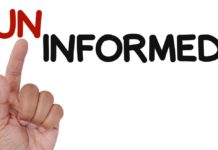Knowledgemaster’s Jim Prigg shares some simple techniques to build momentum and to get your prospective client to the sign-up stage…
You have reached a point in the sales process with a prospective client to move to the end game. What happens now? How do you get permission to move on? Here are five simple techniques to keep the momentum up to get the business to the sign up stage.
1.Implied Consent
Implied consent makes it easy for people to buy. When the interview has reached the point where you believe the prospect considers your proposition or offer a logical and desirable answer for their problem, why insist on an admission that they are ready to buy?
Implied consent simply takes it for granted that the sale is made
Implied consent simply takes it for granted that the sale is made. If the person does not indicate otherwise – it is made!
However, if they don’t go along with the assumption that the sale is made, the interview is not necessarily over. You simply continue with the presentation.
One of the easiest ways to use implied consent is to start filling out the application form. Begin with the questions, which the person can answer easily and is least likely to object to: “Now, Mr. Prospect, let me get some information from you. What is your home address? How long have you lived there?” If they don’t stop you, you’ve made a sale!
2. Decision on a Minor Point
By getting the person’s decision on a series of minor points, it’s much easier for them to make the one big decision. Buying $500,000 of life insurance can be a big decision for many people. Minor decisions include:
- Agreeing to have an examination
- Selecting the plan of insurance
- Naming a beneficiary
Are you giving your potential client a chance to make decisions on minor points?
Do you get them to agree that they could save so many dollars a year, that this is a good plan, to name a beneficiary, that there is a hazard in delaying, on the method of premium payment, to see a doctor, and to write a check for the first premium?
Using this technique starts a chain reaction of small decisions that can easily and logically lead to the big decision without once having to ask the big question.
3. The Loaded Alternative
Here, the prospective client is given a choice between two minor decisions. Whichever decision they make closes the sale. Use questions like:
- “Mr. Johnson, would you prefer to make your deposits once or twice a year?”
- Would you prefer to see Dr. Jones or Dr. Smith?”
- “Would you like to have your examination at the doctor’s office or would you prefer to have him come to your home?”
- Would you want to leave this for your wife on deposit at interest, or would you prefer to have it on a definite monthly payment plan?”
4. Start an Action
Here are some questions that will start actions:
- “Mr. Prospect, how do you spell your middle name?” (This is an easy question to ask – but it starts an action the prospect will have to stop, if they aren’t going to buy.)
- “May I sit here at the table and fill out this application?”
- “Is it OK to phone from here to arrange the Medical Officer to visit you tomorrow?’
- “Whom do I talk to at your former employers to get your super rollover details?”
- “Can you confirm your TFN for me, please?”
5. The Take-Away
People hate to pass up bargains. The fear of losing out is a powerful motivating force. Urge the prospective client to act now before the opportunity to secure a bargain or unique chance is gone.
The fear of losing out is a powerful motivating force
- “On June 30 this investment opportunity closes for this tax year. I assume you want to get the benefits of this investment into the current tax year?”
- “Mr. Prospect, the day after tomorrow the premium rate will go up because you have an age change at that time. For insurance purposes, you will be a year older.”
- “We know you are in good health today, but what about tomorrow? Let me make sure you can apply now while you’re in robust health.

This article is reprinted with permission from Jim Prigg CEO and founder of Knowledgemaster International (KMI) Pty Ltd. KMI is an online resources company that delivers practical communications, interaction, sales and soft skills tips, tactics, techniques THAT WORK.
Learn more about winning business programs by calling Jim at mobile 0408 520453 or jim@knowledgemaster.com.au
Want more of this type of “How to” content? Join our practical Knowledgemaster online community library. Only $1 for your first month, then just $99 per month after that. Read what you receive here.
Which areas of your business could you use more practical knowledge to boost your productivity and profitability? Copy and email today to jim@knowledgemaster.com.au
- Simple prospecting and lead generation ideas
- How to get more appointments on the telephone.
- Presenting and presentations skills
- How to handle objections to your offers.
- How to Gain Commitment to your offers. “Closing with Class”
- Management Masterpieces
- How to sell (more) insurance
- How to build a referrals based business
- Better time management and control
- Simple communications and interactions tips
- Sales and soft skills ideas
- Practical and simple marketing ideas
- Cold calling tactics and techniques. Electronic. Face/Face. Telephone
KnowledgeMaster® P/L. ACN 44 137 872 952
14 Wood St. PO Box 57 Colac Vic Australia 3250
Mobile: 0408 520 453
Email: jim@knowledgemaster.com.au
Website: www.knowledgemaster.com.au








Most of Jim’s closes are old hat now. In days gone by when prospects were less savvy they might have and did work. However, insurance buyers are now more aware. Pushy hard closes such as the above will turn them off. There are better ways to close business and remain friends. These reflect more sensitivity; they don’t insult the client’s intelligence and are in keeping with our more professional approach in the modern environment.
Comments are closed.